The Matcha Latte Worth The Pilgrimage
Would you like purification with that?
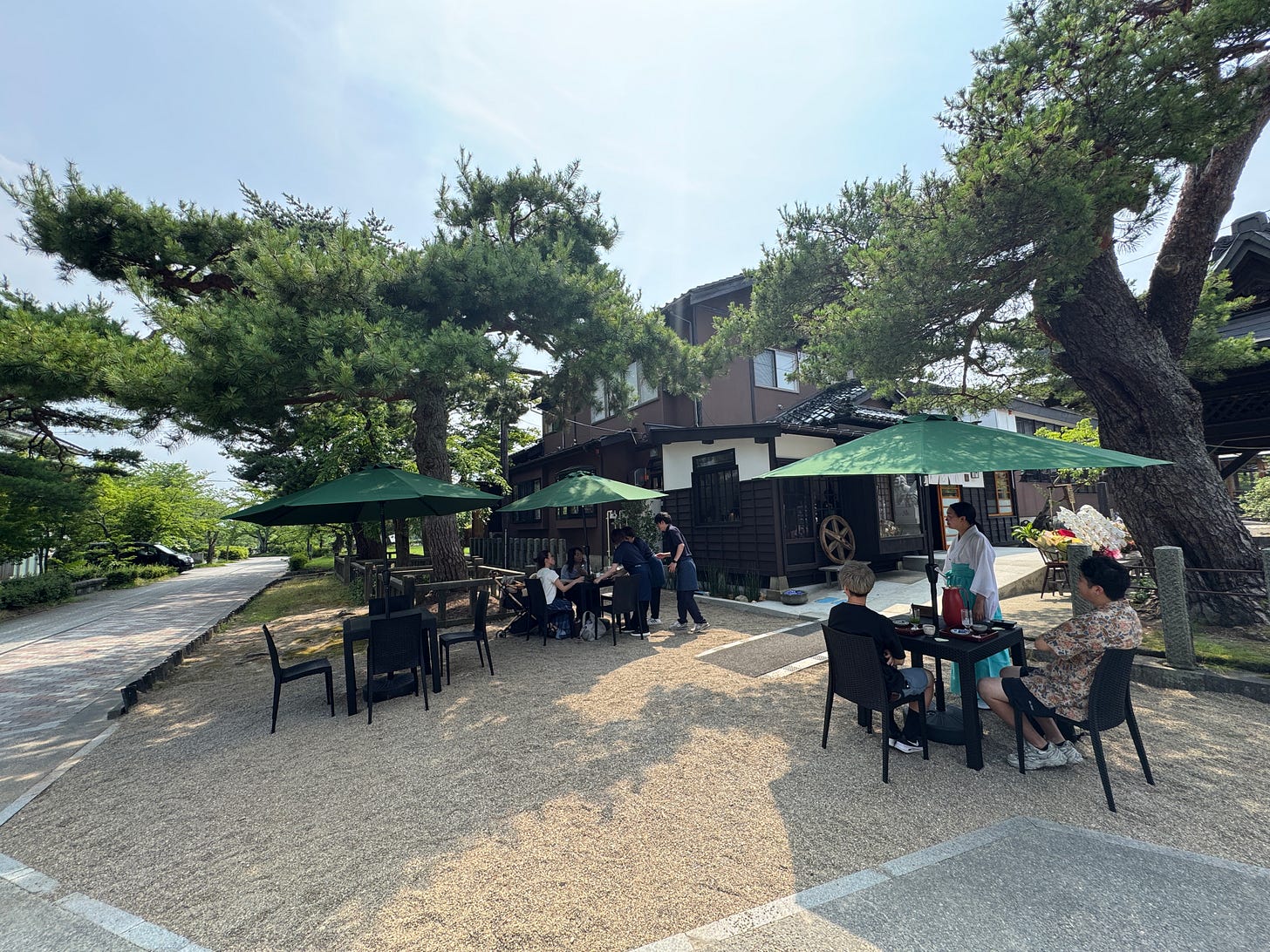
It could be the pristine grounds of the former samurai castle Shinto shrine. It could be the flower on the emblem for the castle the shop is named after, the original proprietor’s favourite flower. It could be that, or it could be the thought that the current priestess was only a young girl when she helped out her own grandmother in the original restaurant, named 喫茶民藝かたばみ Kissa Mingei Katabami, some 30-odd years ago.
For whatever reason, Katabami is a cafe / restaurant I see myself visiting time and time again.
It was out of the blue.
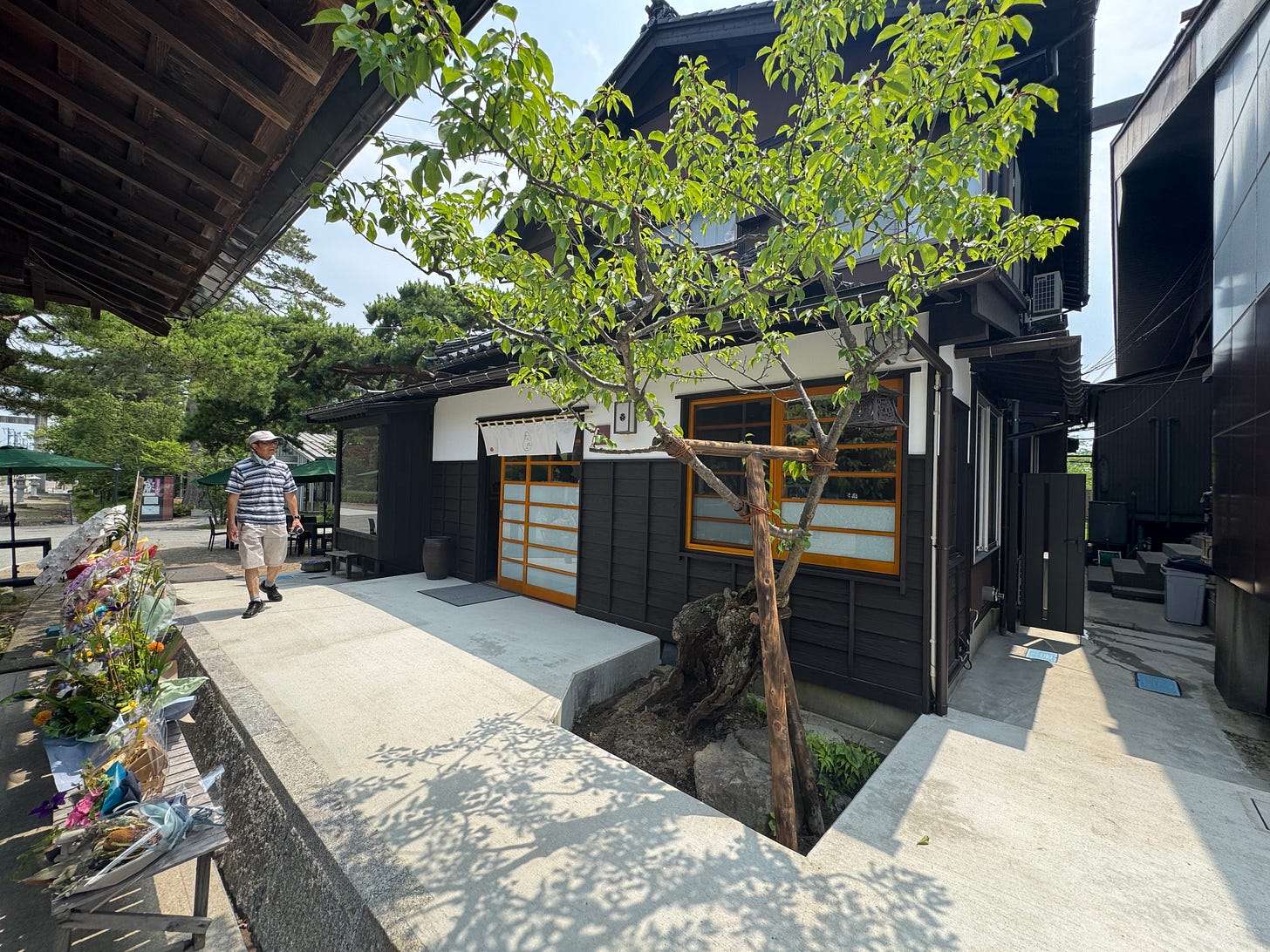
A few weeks back my friend sent me a message asking if I wanted to ‘influence’ for him at the opening of a new restaurant. I’m happy to help a friend, and I’m happy to use my limited ability to ‘influence’ as well.
But to be honest, I’m probably most happy for a free meal.
So I said yes.
Fast forward to a few weeks later. Another friend, who happens to be a Shinto priestess, emails me an official invite to the opening of the restaurant. This was when I discovered the restaurant was located in the grounds of her Jinja (shrine), Shonai Jinja, one of the biggest shrines in these parts. Shonai Jinja is located in Tsuruoka Park (or it could be the other way around). Tsuruoka City was Japan’s first UNESCO Creative City of Gastronomy.
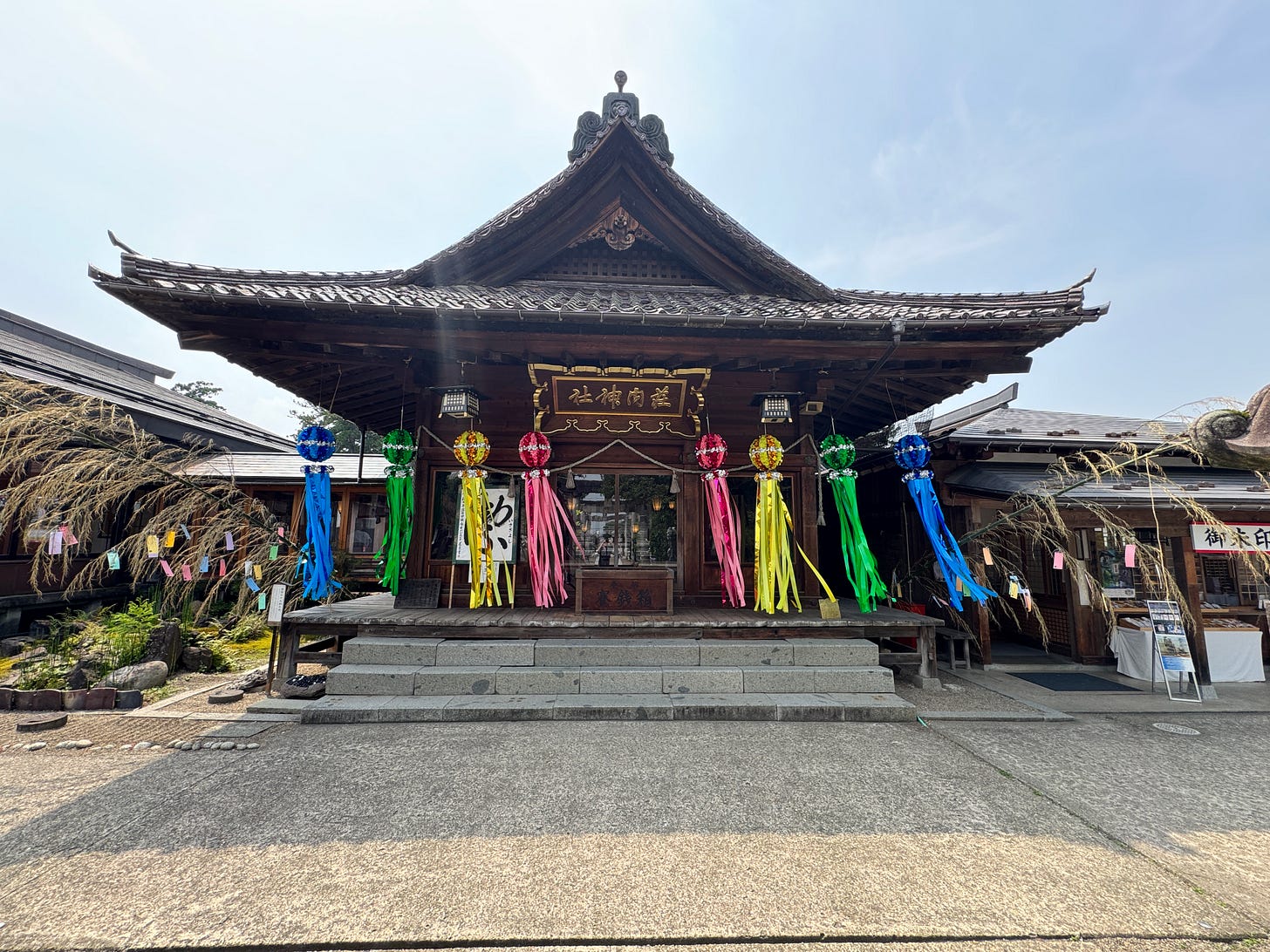
I rocked on up to the restaurant a little before opening time. As is custom, I paid my respects to the Kami, and was invited into the waiting room. There I learned who I would be sitting next to, the father of that first friend, who I was meeting for the first time.
Nothing weird about that.
Seriously. He was a very cool dude. Runs a clinic right near where I live. We talked about religion in Japan, which I guess is normal if you’re in a shinto shrine talking to a yamabushi from New Zealand.
What is weird, I guess, is that my friend is a doctor. He’s a doctor, but he’s also an entrepreneur, a serial one at that: Someone who has built gyms (for exercise, not Pokemon), container ‘hotels’ (what we would call motels in New Zealand), an onigiri rice ball shop, and more recently, a rest home.
Can you see why I’d want to help this friend out? Anyway, when the time came my friend’s father and I entered the restaurant through the customary Noren curtains over the door.
And I was taken aback.
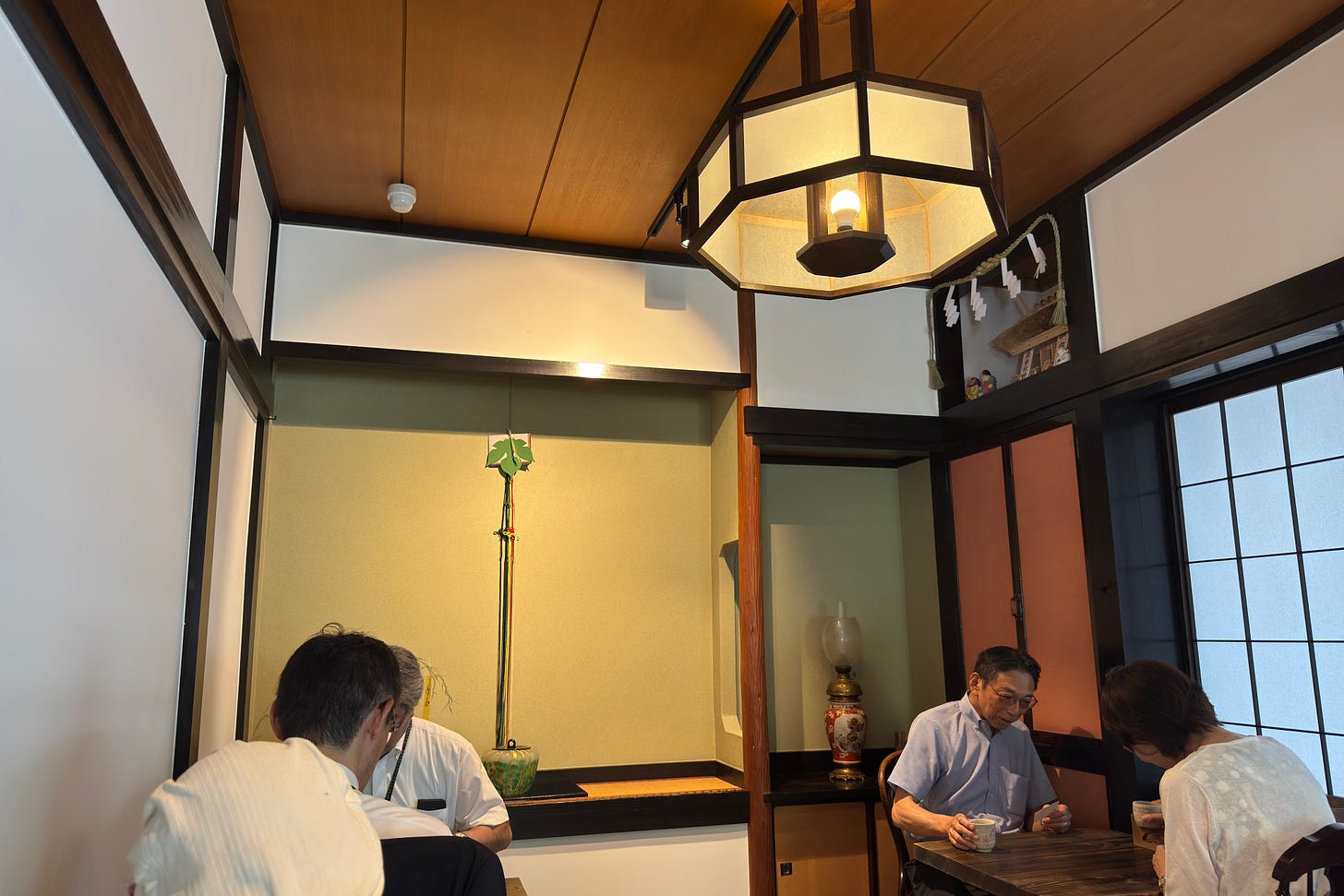
The place is a gorgeous mix of retro Japanese decor and more modern amenities. Retro Japanese places tend to also have retro heating and cooling, like the Kerosene heaters Japan loves to bits (true (and sad) story).
Katabami had none of that.
It kept the old school vibes, and added modern comfort. In the middle of summer this was very much welcome.
Once through the door we were asked to choose our meals and drinks. Our choices were two Omusubi Onigiri rice balls out of:
Unadama ‘eel ball’ (much nicer than it sounds, Japan does eel right)
Ume Tororo Konbu (plum Tororo kelp), or
Osekihan (lit. ‘honourable red rice’) which is mochi rice with red beans that has been steamed in its own broth.
Honourable Knots and Rice Balls
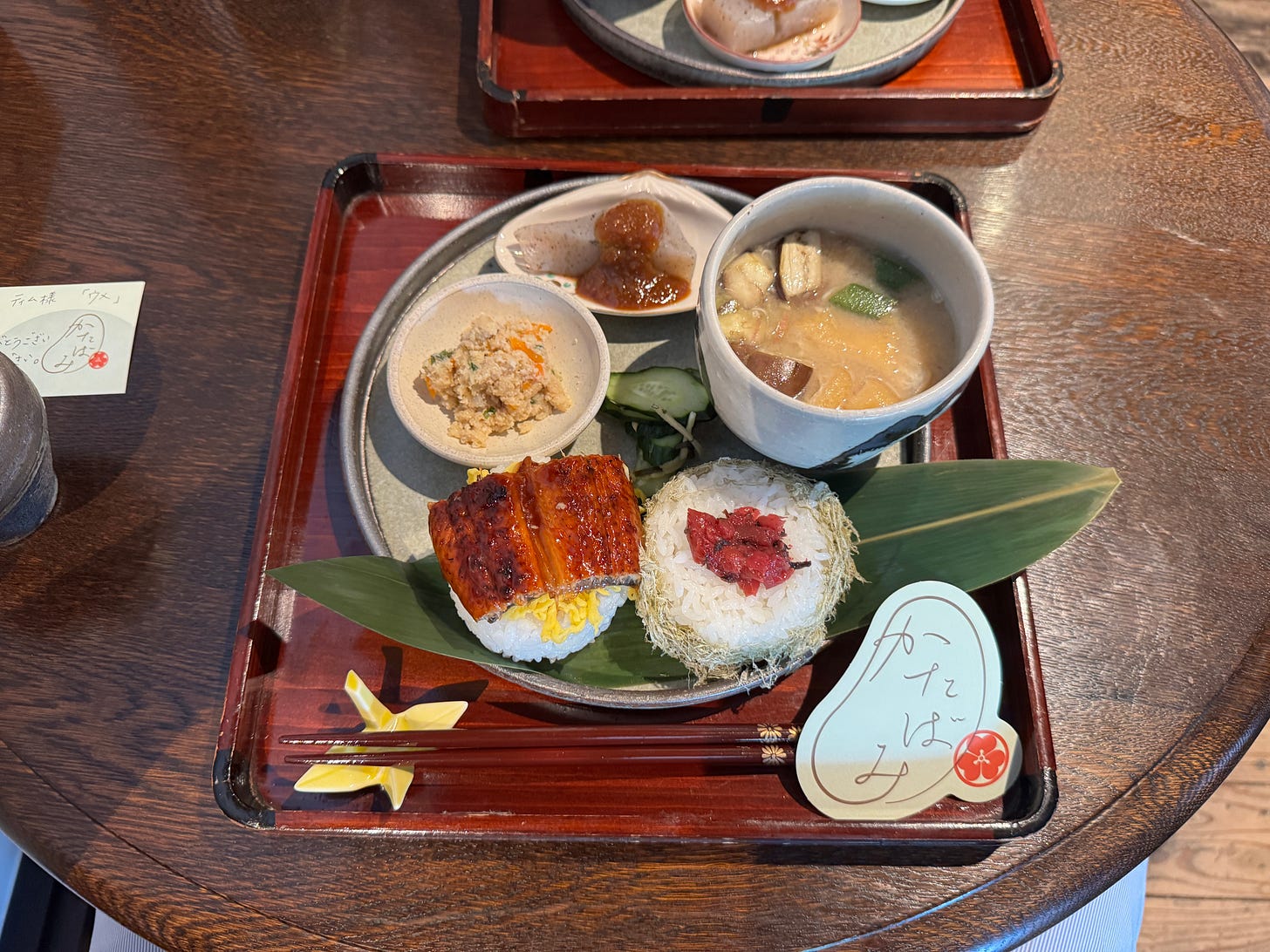
Onigiri can also be called Omusubi. This is literally ‘honourable things that are tied together’. Or, more simply, ‘honourable knots’. Musubi is a massive concept in Japan, think the mizuhiki knots tied over shugi-bukuro, the envelopes used primarily for handing money to people at ceremonies such as weddings and, um, funerals (called kōden-bukuro).
I need to check my facts on this, but I believe the ropes attached to bells at shrines you ring to call the Kami forward are also tied to this concept (pun not intended). Typically the rope will be red and white.
Now for the mains
For appetizer drinks we had freshly-squeezed apple juice from Infini Farms in nearby Kushibiki. As much as possible, as you’d guess for an agricultural region, the ingredients were locally-sourced. Of course the rice was premium-grade Tsuyahime from Shonai. I may be biased, but Shonai rice is arguably the best in Japan.
When our meals came out, I got talking to the priestess. She told me the miso dengaku tofu, a sweet miso paste on top of a piece of tofu, was her grandmother’s original recipe. I’m not sure exactly what it is, but the green stuff around the pickled plum onigiri (centre front in the picture), was delish. Of course the miso soup was great as well, freshly sourced ingredients and chefs who know their stuff and all that.
After-meal Drinks
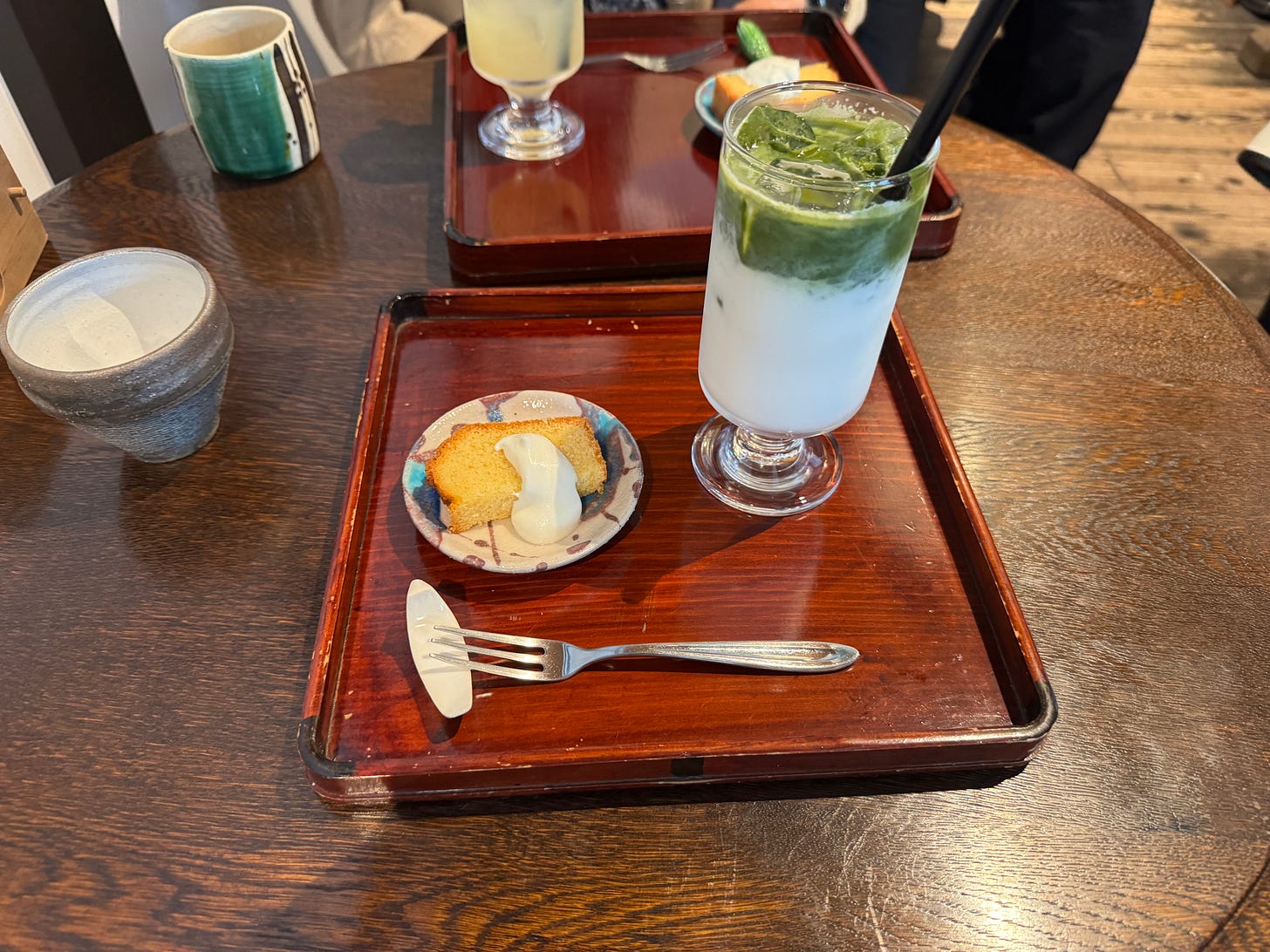
I was well impressed with the after-meal drinks they served. I am a big fan of matcha, Matcha Latte is my Starbucks go-to, and I even make it at home sometimes with Manuka honey from New Zealand when I have it.
As such, I consider myself not just a matcha lover, but a matcha connoisseur. Take this from me,
Katabami’s Matcha Latte was next level.
It wasn’t made with milk, as you’d expect, so technically it isn’t a latte. It was made with Amazake, a sweet non-alcoholic (or low-alcohol) drink made from fermented rice. This means there is no sugar used (as far as I’m aware), but it is still rather sweet, and when mixed with the bitterness of the matcha it makes a very good combination.
Katabami Cafe: Would you like purification with that?
I’m very much looking forward to visiting at different times of the year. Dining is a part of shrine hospitality. Clean, mindful, and seasonal eating is seen as its own form of quiet purification.
And who knew that a simple onigiri, well, one eaten on shrine grounds, could be so symbolic? If you ever find yourself wandering Tsuruoka Park or visiting Shonai Shrine, stop by Katabami. Even the simplest meal here feels like part of something bigger.
Katabami Café: Quick Info
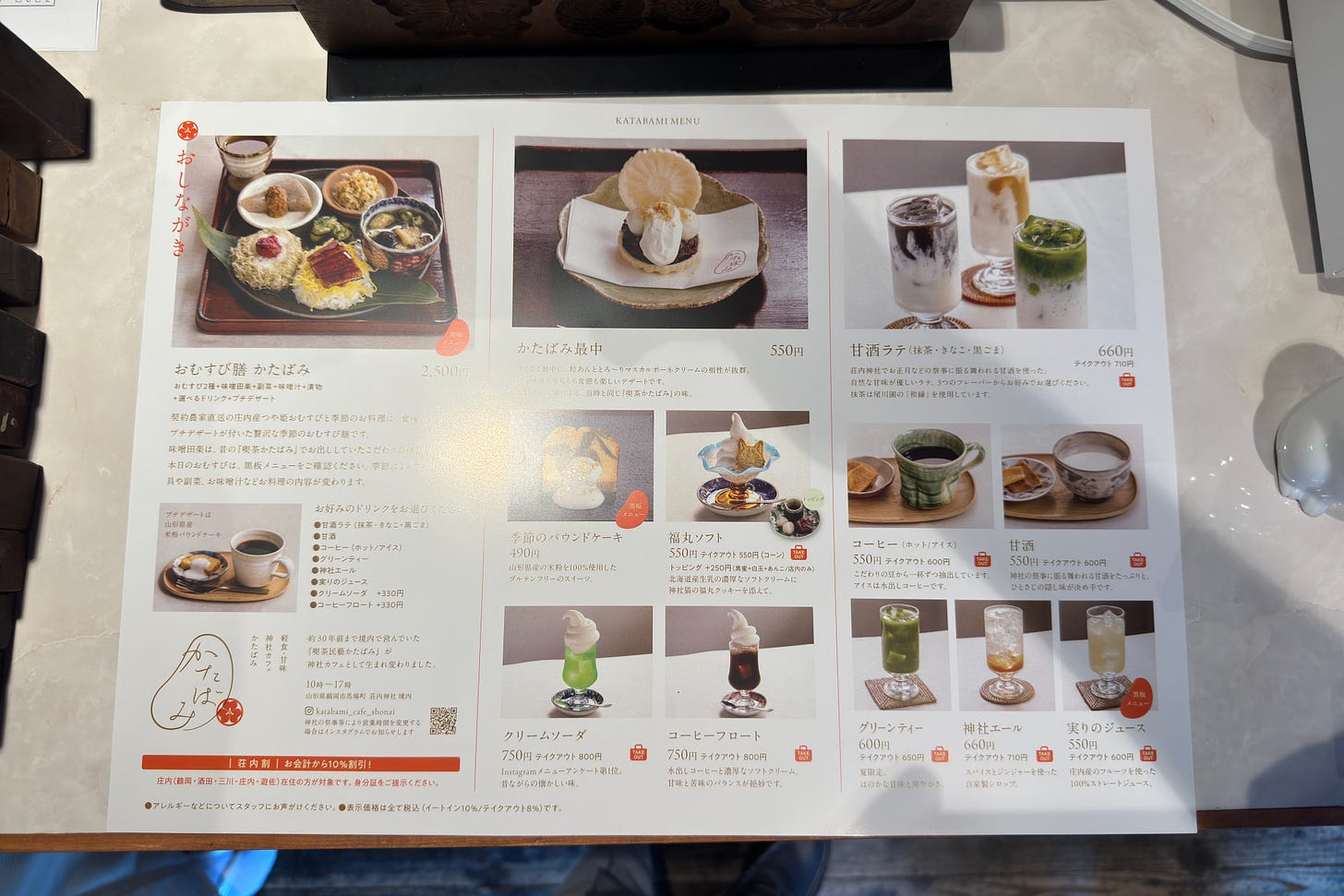
Location: Inside Shonai Jinja (Shonai Shrine), Tsuruoka Park, Yamagata
Opened: July 7, 2025 (revival of 喫茶民藝かたばみ café from the 90s)
Opening Hours: 10:00–17:00 daily (last order 16:30)
Closed: Open year-round, no fixed holidays
Parking: Free parking at Tsuruoka Park’s East Lot & City Hall 2nd Lot
Pet-friendly: Terrace seating welcomes dogs
Menu
Omusubi Zen Set
2 seasonal rice balls (e.g. eel & egg, plum kelp, red bean rice)
Miso dengaku tofu, pickles, miso soup, drink & petite dessertSeasonal Desserts
Monaka wafers, parfaits, and moreSignature Drinks
- Amazake matcha latte, cream soda floats, coffee & teaTakeout available for rice balls and drinks
Instagram: @katabami_cafe_shonai
Special: Shonai-wari discount—groups with a Shonai local get 10% off
Daily Yamabushi for The Week
Daily Yamabushi posts for the week of July 11 to July 17, 2025.
Read Daily Yamabushi at timbunting.com/blog. Everything I make is free of charge if you know where to find it. I’d start here.

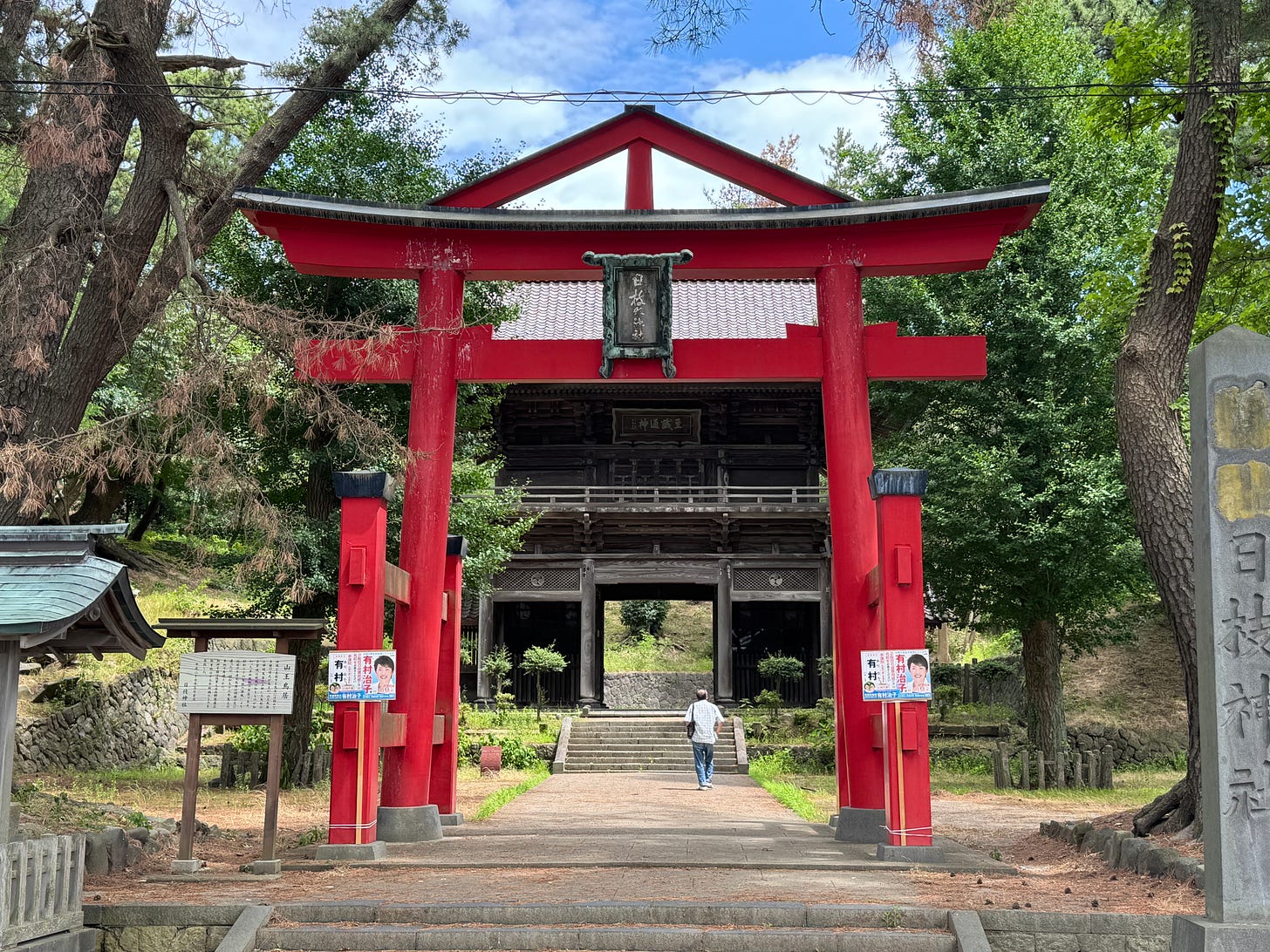
I'm not a macha latte fan (or TBH a latter fan) but amazake sounds like a great alternative to latte milk.
Looks and sounds like a delicious meal.